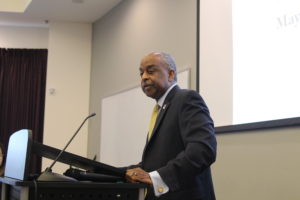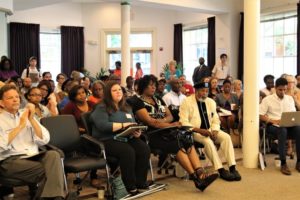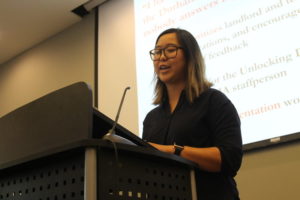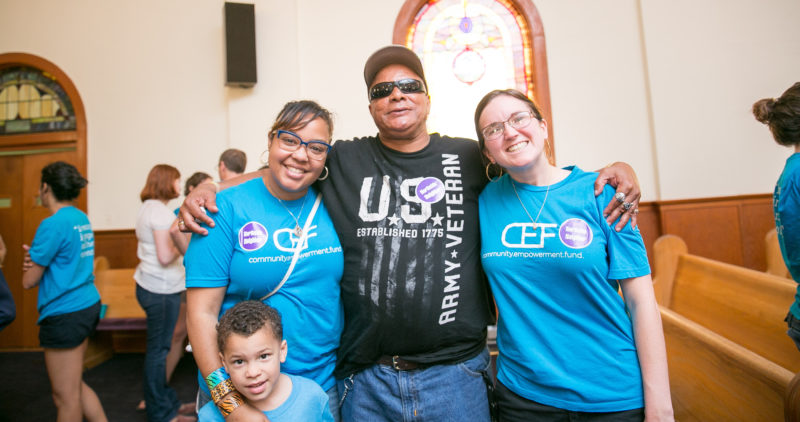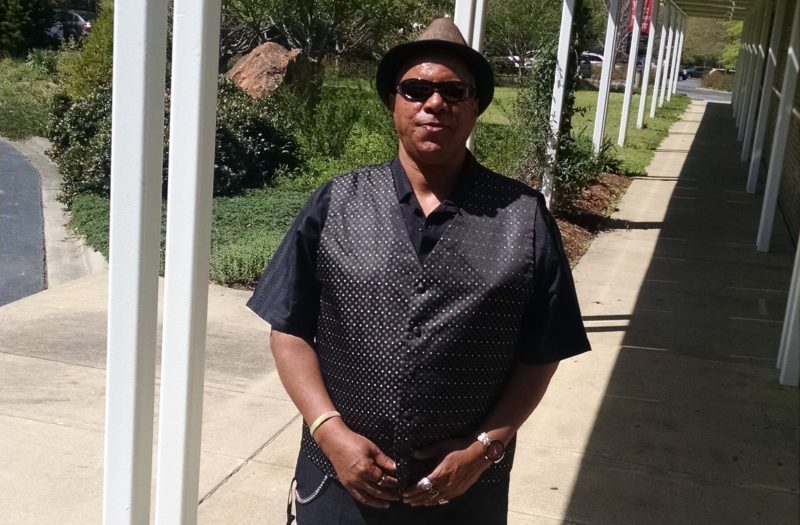Merica St. John is an artist in both word and deed. In her home, at every turn, there is a handcrafted statement piece with its own backstory—ways her identity and history find vibrant expression. In a conversation, at every turn, Merica weaves stories, bringing her own experiences, feelings, and communities to rich life.
Merica first met with CEF Advocates in 2014 as she was just getting settled in Durham in a new home. Recently, she purchased that home, and invited her Advocate Valeria, and CEF Co-Director Janet to her housewarming party. Thank you, Merica for sharing your story with us and the CEF community!
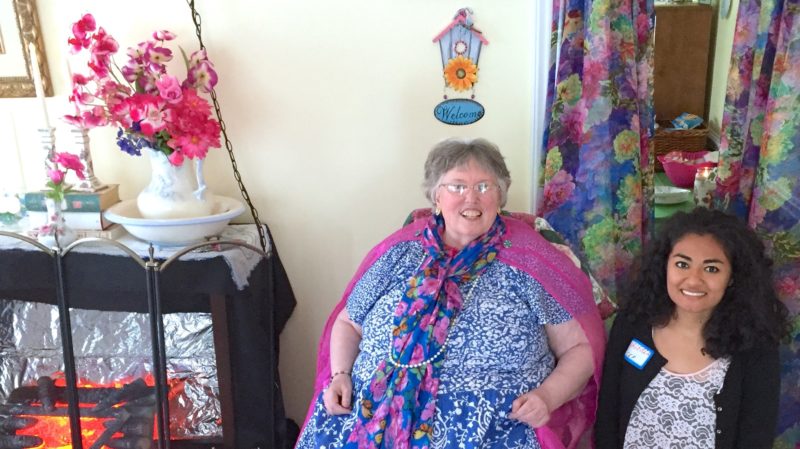
Merica and her Advocate, Valeria, at a housewarming party to celebrate Merica’s home purchase!
June 27, 2017
Making New Roots
It was a hot day in July when I stopped in at the VA Hospital in Durham to see about help for homeless veterans. I wasn’t exactly homeless, but I was staying in a hotel while I looked for a place to live in my newly adopted hometown and state. I’d moved to North Carolina from Minnesota that summer of 2014 without knowing anyone. I arrived with two suitcases and a lot of hope and faith. It wasn’t the first time I’d moved somewhere new without all the puzzle pieces in place.
My husband and I left Minnesota for Alaska in much the same way eleven years before that. I had no idea then that I would be a widow a year afterward. Six years later, I went to Ghana, West Africa in a similar way, knowing only one person on the entire continent of Africa.To many, such moves seem risky and foolish, but I’ve walked with God for thirty-eight years, so it doesn’t seem strange to me when He directs me in this way. Never yet has He failed to provide for me.
And so, on that July day three years ago, I met with a social worker who told me about CEF. “I know you’re not really homeless and soon you’ll have housing of your own, but you’ll still need to know about community services and ways to make Durham feel like home to you,” she said as she handed me CEF’s number.
I called, and the rest, as they say, is history. On a Saturday soon after that, I met with Valeria, a lovely young woman attending Duke. Although far apart in age, we soon found common ground as she was new to the area as well and far from her former home in the West. She understood my needs, which were primarily for furniture and other basics to set up housekeeping. By the time we met, I’d found a house to rent.
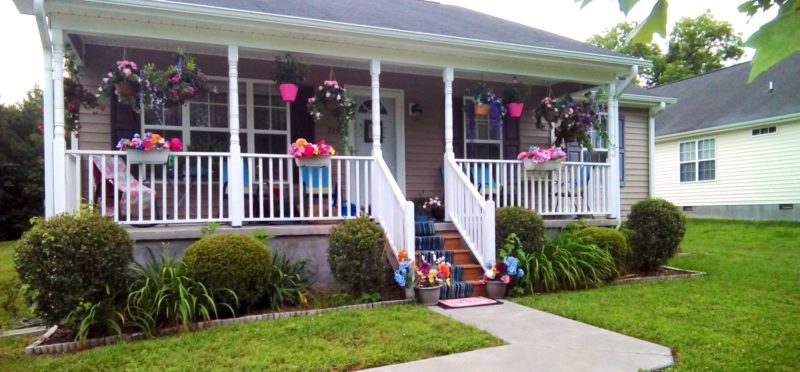
A Home Meant for Merica
She and others found it a little hard to understand why I needed a 1200 sq. ft. house just for myself, but I knew the place was perfect. Although I had no one else living with me, I always thought in terms of hospitality. I needed a room for writing and one for crafting, as well as my bedroom. I needed a guest bathroom as well as my own. I considered how many people I could have for dinner, or to come for afternoon tea. I thought about parties, and even overnight guests I knew the house was just right for me.
What no one knew except me and those who had known me long before was that living in a house was a miracle. I had suffered for years with clinical depression and severe anxiety, both conditions crippling me in many ways. I also had PTSD following sexual traumas beginning very early in life. For nearly a decade in my midpoint of life, I couldn’t live on my own at all. I spent close to a year in a wheelchair, and almost four years in a nursing home due to debilitating mental and physical issues. Little by little, with a lot of therapy, I got better and more able to manage life. When I was at last able to live on my own, I chose apartments so I would never feel alone and vulnerable.
By the time I moved to North Carolina, I had been living on my own for fourteen years. I was feeling healthier in body and mind than I ever had. I was ready to try a townhouse in Durham. I used Rent.com to find a place. It’s free and a great service that helped me weed out places by looking at them on the Internet. Even after putting in such criteria as needing central air and a convenient location, there were many that just weren’t right for me.
Coming from the Midwest, one thing I wanted was a porch. I went to see a townhouse with a porch and a white picket fence. It looked so charming on the website, but when I saw the interior layout I knew it wasn’t right for me. I went to see another townhome that seemed nice. It had a fenced-in yard with lots of trees behind it, and I liked that. Still, I knew it wasn’t “the one.”
A few days later, as I sat at the hotel’s computer, I saw a house I wanted to go see it right away. The owners wanted to sell it, but they ran out of time before their move, so they put it up for rent. I knew this was the house for me. There was a porch across the entire front of it, and there was a fenced-in back yard with trees behind it. But the way I knew it was my new home was that it had a writing room with built-in desk space. The layout and location were ideal for me.
Homemaking and Community
Soon, I met my neighbors and found them to be kind and helpful as I settled in. I rented furniture from a very dear man named Terry at Victory Rentals. Through CEF, I learned about the Furniture Project, and soon had two nice kitchen chairs, a love seat, a queen size bed, a nightstand, a table, dishes, etc. Within a short time, I was able to end the rental of furniture, keeping only the washer and dryer. Eventually, I paid them off and still use them three years later.
Valeria and I focused on other things such as a budget and connecting with other services in the community. It wasn’t long before I felt like I belonged in Durham and was networking.
It is June three years later, and anyone seeing my home would find it hard to believe I arrived with nothing. My home is filled with pretty things that make it look like I’ve acquired treasured items over the years. In reality, most of them came from local thrift stores, but they have happy memories for me as I chose them with care.
I’ve been asked when I became so “crafty,” doing fiber arts and décor items. I usually just smile and say I’ve been doing it for years. There is a story to it, though. I was graduating from high school, and each of us in the Class of 68 carried a long-stemmed yellow rose in the procession. I was to read the class poem I’d written. Being a bit nervous, I finished at the podium and returned to my seat afterward and sat on my rose I’d left on my chair. I sometimes tell people my crafting interests began in high school with pressed flowers!
May 2017 was quite a month. I bought the house I’ve lived in since moving here, I had a house party and got to see Valeria again along with Janet and many other friends old and new that I’ve made since I came here.
Exactly two months after starting the process to buy the house, I began a relationship with a male companion. His name is Harry, and he is a 16-pound Maine Coon cat. He is over two feet long and still growing. He not only moved into my home but into my heart as well. I adopted him from a local animal shelter. I know what it’s like to need a forever home.
And so, my story goes on. As each piece fits into place, I feel more settled, and I make more friends. I treasure all those I’ve made. Valeria has moved away now, but we keep in touch. She will always be part of my life, as will others at CEF and elsewhere who helped me get a foothold in Durham.
I am also finding new writing opportunities and hope to see more of my books in print this year besides the two currently in publication.
The only moving I plan to do now is to move my dear Harry off my keyboard so I can keep writing.
 Harry, Merica’s new companion.
Harry, Merica’s new companion.
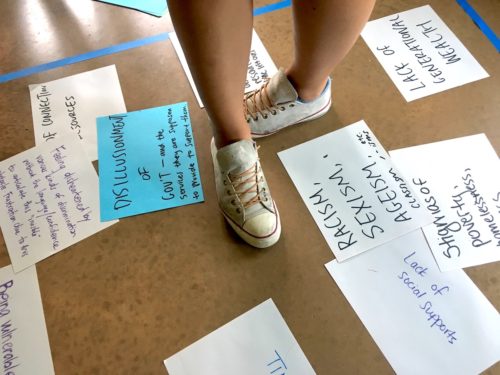
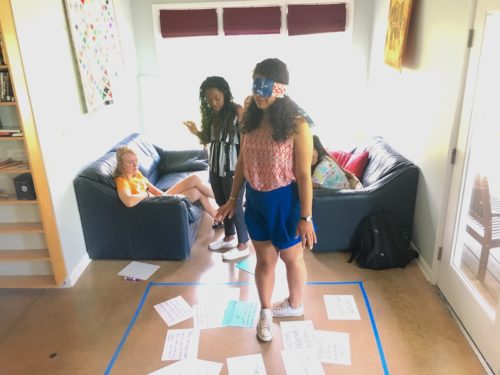
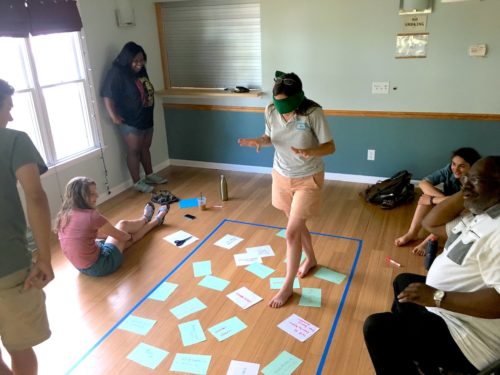
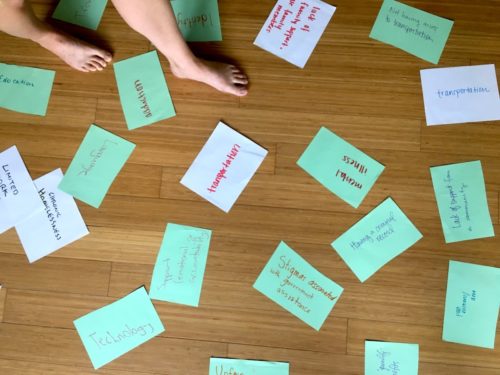

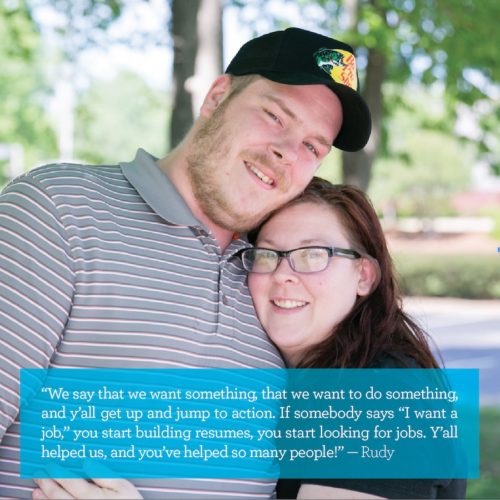
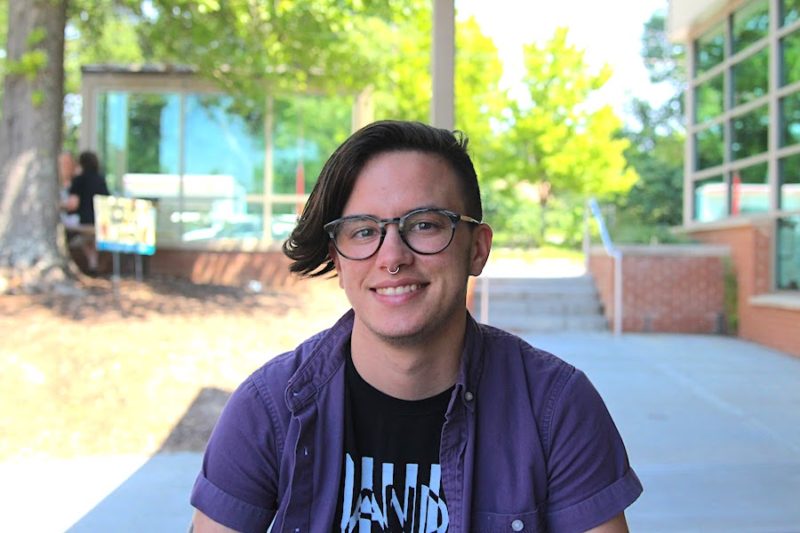
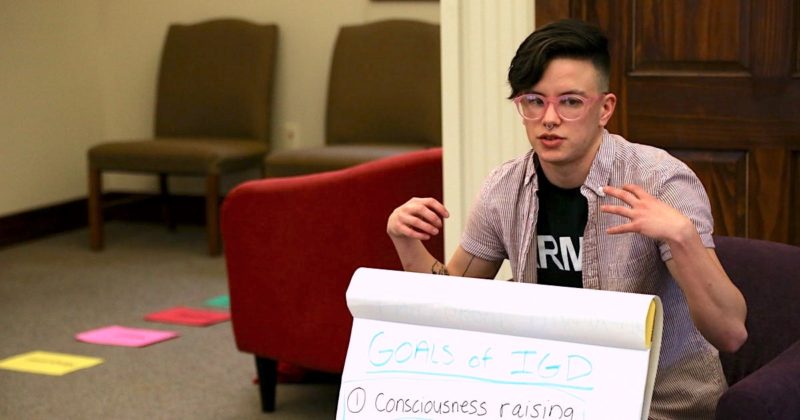



 Harry, Merica’s new companion.
Harry, Merica’s new companion. 
